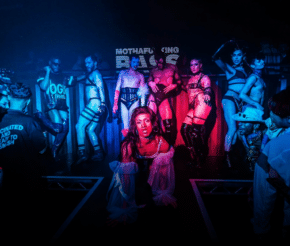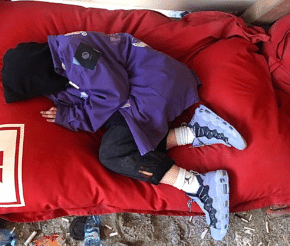- Advertise
-
Subscribe
Gen Z Clubbing Trends Shaking Up The Nightlife Scene
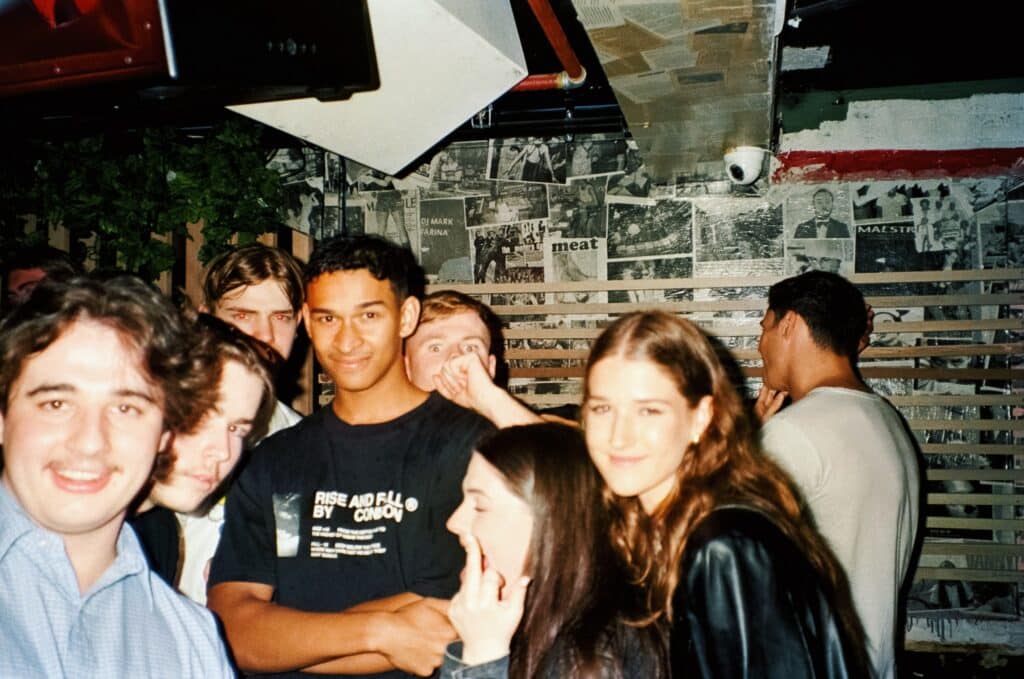
Everywhere you go, Gen Zers dance on the edge of societal norms, daring the world to keep up with their tradition-defying escapades. They’re embroiled in battles of their own – against fast fashion, the hetero status quo, and the delusion that one can simply ‘Netflix and chill’ their way through life.
Way too embroiled to summon the stamina needed to survive a night at Paradise Garage.
For the generation that thrives on cancel culture, flips a middle finger to gender binaries, and drinks detox shots, going out seems to be waltzing away from its hedonistic roots.
They’ve managed to flip the script so thoroughly that the Millennial way of partying now appears as outdated as dial-up internet
Raised by Gen Xers through a haze of Chardonnay and whatever people smoked before weed strains were a thing, Gen Z is laser-focused on clubbing.
As fearless disruptors and progressive pioneers, those digital natives are brewing a clubbing culture renaissance. They’ve flipped the script so thoroughly that the Millennial way of partying now seems as outdated as dial-up internet.
They’ve taken the debauchery-laden, raucous revelry of the millennial days and transformed it into an ethos of conscious celebration. While Millennials are busy navigating the hangover-inducing tightrope Jägerbombs, Gen Zers are in the corner, sipping on their low-ABV cocktails or a locally-brewed kombucha.
Inebriation is no longer the aim, it’s the connection – the vibe, if you will – that counts.
The redefined club scene
An average Gen Z’s clubbing itinerary would start with swaps and exchanges within their social group: vegan leather jackets, high-top crocs, and vintage hoodies. You get the idea.
Since 73% of Gen Zers are willing to cough up more cash to keep the planet green, their journey starts with a swipe on Uber Green. They hop in the car, singing along to their favorite underground bands while making sure they stay hydrated with reusable bottles.
Where they end up isn’t just any club. It’s likely to be a small, independent venue known for its organic cocktails and locally-sourced products.
Drinking to oblivion and blacking out is not on the youngins’ radar as they are toasting the night with 20% less alcohol than their Millennial predecessors.
It’s their way of living while curbing carbon footprint guilt.
They groove under the glow of power-saving LED strobes, vibing to a mashup of cross-cultural beats dished out by the next big thing in the DJ scene.
Seeking a different kind of buzz
For most of human history, youngsters have spent a good chunk of their lives going out – a euphemism that mostly involved getting fucked up on no-name gin or questionable white baggies (or both) and waking up in a field.
But Gen Z is not about that life. A 2022 report led by music platform Keep Hush revealed that younger generations are less interested in drugs and drinks when going out.
Over the past few years, it has become increasingly acceptable to be the person who doesn’t drink or take drugs
With post-millennials clubbing 13% less because they “can’t convince mates” and “prefer staying in,” it seems like young adults are heading towards an early retirement from the clubbing scene.
Over the past few years, it has become increasingly acceptable to be the person who doesn’t drink or take drugs. Gen Z might be the only generation who respects and cherishes this status, unlike Millenials and Gen X, who would probably swap your Ribena for a vodka-cranberry.
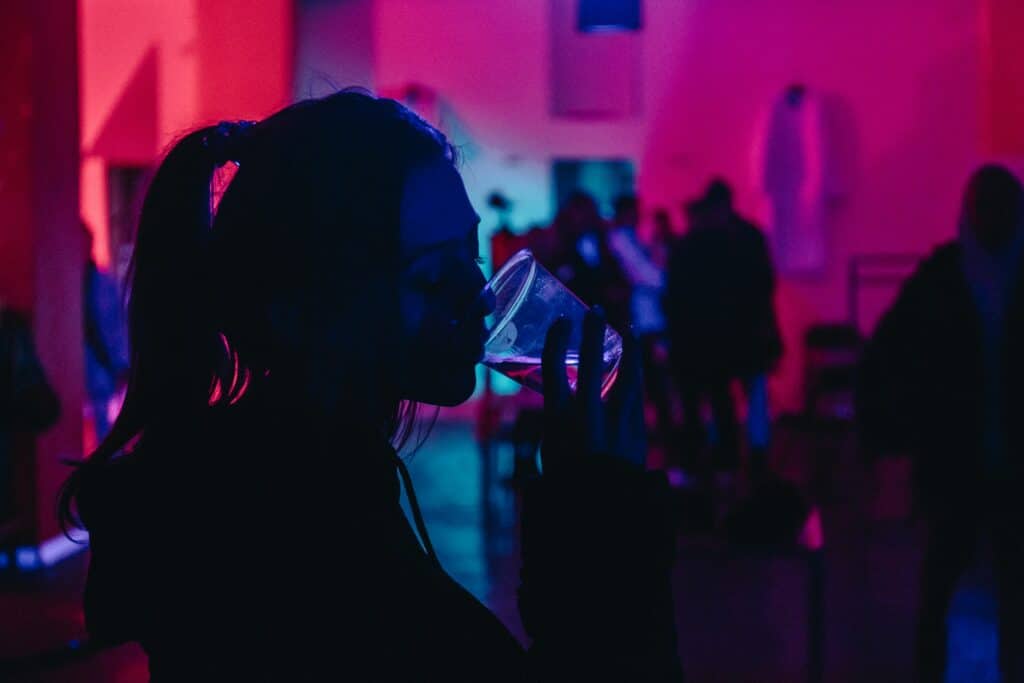
That’s because Gen Zers’ coming-of-age in the clubbing sphere coincided with the pandemic. Most of their party groups were built in the comfort of their friends’ houses, during mid-week barbeques, and small-scale get-togethers – pretty much anywhere but the club.
We also can’t overlook the fact that zoomers’ childhood was heavily influenced by digital technology and social media. Their approach to life and socialization has been shaped by the fear of becoming a viral meme – and oh boy, do they know the perils of oversharing.
Remember those regrettable Facebook posts and the infamous Twitter rants that the Millennials bemoaned? Yeah, they watched all of that.
They’ve seen firsthand how one drunken pratfall can become an eternal cybernetic embarrassment. It’s like every night out has the potential to turn into its own episode of Black Mirror.
No alcohol in that, please
It seems like Dry January, the annual sobriety challenge, is more like a lifestyle and less than a 31-day teetotalism. While Millennials made a sport out of stumbling from dive bars to sticky-floored house parties, downing shots, and earning their hangover badges of honor, Gen Z is sauntering into adulthood with a very different agenda.
Though Gen Z members are turning their back on yet another Millennial clubbing trend, they have some valid reasons for doing so
They’re sidestepping a well-trodden path of questionable life choices and wince-inducing tequila and are opting for less hazy experiences. A study from Gallup revealed that in 2019, 16-to-25-year-olds were the most likely to be teetotal, with 26% not drinking.
Though Gen Z members are turning their back on yet another Millennial clubbing trend, they have some valid reasons for doing so. According to a study by market research company GWI, for 38% of young adults, alcohol taste doesn’t hit the spot.

Then there’s the little issue of the wallet-gouging effect of a night out. For 20% of Gen Z surveyed, the financial toll of getting tipsy just doesn’t add up. We’re talking about a generation wrestling with student debts, rising living costs, and an uncertain economy.
Going sober is no longer the drab affair it once was. A plethora of zero-proof cocktails and low-alcohol beverages – from blood orange spritz to ginger beer – have been elbowing their way into the limelight, redefining what we consider a classic nightcap.
Call it sober curiosity or the renaissance of the non-alcoholic beverage, but it’s clear that it’s been shaken up. As per a 2022 IWSR Drinks Market study, the sales of no and low-alcohol beverages spiked by 7% across ten global markets, including Australia, Canada, Spain, and the US.
Less FOMO, more spontaneity
Once ridden by the FOMO syndrome, Gen Zers are now embracing the last-minute rush. For the generation that used to snatch up concert tickets faster than a scalper with an auto-refresh bot, this laissez-faire approach to event planning is becoming the new norm.
Almost one in five post-millennials now shrug at the idea of buying tickets ahead of time, even for the most hyped-up events.
Here’s the kicker, though: this shift in behavior could have some pretty gnarly implications for high-risk events and festivals
The anticipation of club nights has been replaced by the thrill of the unknown, of maybe-or-maybe not plans that lend a whole new level of excitement in their social calendars.

With life as unpredictable as it is post-pandemic, why lock down plans when you could keep your options open?
Here’s the kicker, though: this shift in behavior could have some pretty gnarly implications for high-risk events and festivals. Picture the classic scramble of securing vendors, managing logistics, and bracing for no-shows, now amplified by last-minute ticket sales.
Embracing rainbow clubbing
One of the most interesting shifts we’re seeing in Gen Z’s clubbing landscape is their burgeoning preference for LGBT+ clubs over traditional, heteronormative venues.
Back then, these establishments were a sanctuary for queer communities to express themselves without judgment. But with Gen Zers being the most queer-ious generation to date, rainbow-striped clubs are becoming a space where allies share the same dance floor with LGBT+ revelers.
Gen Zers witnessed countless living room debates about same-sex marriage, their favourite pop stars coming out, and reality TV shows about drag queens becoming mainstream

For a generation that’s 21% LGBT+, it’s clear that the shift isn’t just about allyship. Nobody would expect less from the ones born and raised in a world where being queer is not only increasingly accepted, but celebrated.
Gen Zers witnessed countless living room debates about same-sex marriage, their favourite pop stars coming out, and reality TV shows about drag queens becoming mainstream.
When you see a throng of Gen Zers giggling at a drag queen’s one-liners or dancing the night away queer club, they’re not there for the Insta stories.
They’re there to party hard and right – with acceptance and diversity as their plus-ones.
Party like there’s a climate change-affected tomorrow
Anyone who has gone clubbing knows what the aftermath looks like: red solo cups, plastic straws, and cigarette buds everywhere.
For all its cathartic glory, nightlife venues take a hefty toll on the environment. Our beloved nightclubs, often nestled in energy-inefficient, older buildings, are voracious electricity consumers and prolific contributors to plastic waste.
Single-use plastics, from drink stirrers to water bottles, are a significant source of waste, much of it non-recyclable.
It’s estimated that a single club can use as much power over a weekend as an average household in an entire year, translating to 30 tons of CO2 emissions annually.
When it comes to clubbing, Gen Z doesn’t care about beats per minute, but about CO2 emissions per event.
Powered by renewable energy and innovative systems, these eco-friendly party spaces are the new hotspots for an environmentally-conscious generation
Zoomers’ commitment to the environment isn’t just for show – it’s backed up by the numbers. A recent survey revealed that a whopping 82% of Gen Zers are freaked out about Earth’s health, with 72% already changing their lifestyles for Mother Nature’s sake.
From venues like Glasgow’s SWG3 that transforms dance floor’s heat into renewable energy to Berlin clubs becoming emission-free, Gen Zers’ stamp on the nightlife scene is leaving a lighter footprint.
Venues are being transformed by their green revolution. Powered by renewable energy and innovative systems, these eco-friendly party spaces are the new hotspots for an environmentally-conscious generation.
Gen Z’s indie clubbing revolution
In a seismic shift that only a generation raised on hashtags and viral trends could instigate, Gen Z is trading the pulsating mega-venues for the intimate energy of local indie clubs.
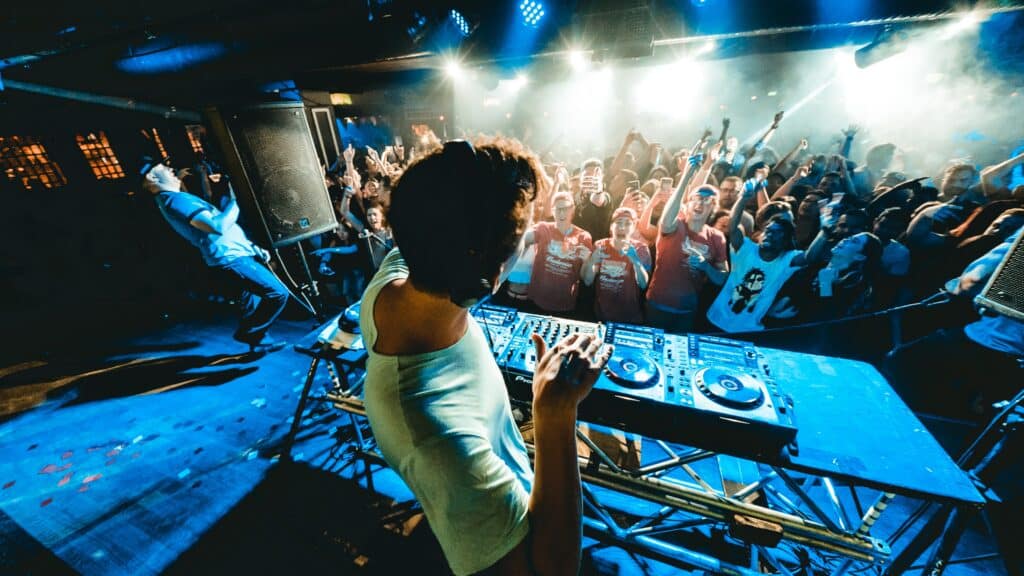
As the children of disruption and social justice, post-millennials aren’t afraid to push against the mainstream current. They’re ditching the strobe-lit, branded cathedrals of revelry, trading them for the raw vibe of the underground.
It’s a nightlife parallel to their daylit hunt for the independent coffee shop, local vintage store, and hole-in-the-wall bookstore
In other words, Gen Zers are voting with their feet and wallets for the close-to-home, hyper-local nightlife scene. The big, corporate club giants, once the epicenters of all things cool, are being sidestepped for the intimate, understated, yet oh-so-real independent venues.
It’s a nightlife parallel to their daylit hunt for the independent coffee shop, local vintage store, and hole-in-the-wall bookstore.
Well, it’s all about authenticity and a side dish of social responsibility.
They want to feel the city’s heartbeat and move to the rhythms of homegrown DJs spinning tracks that aren’t top 40, but top of mind. No more predigested playlists or expensive drinks – Gen Z’s clubbing is about genuine experience rooted in community and consciousness.

